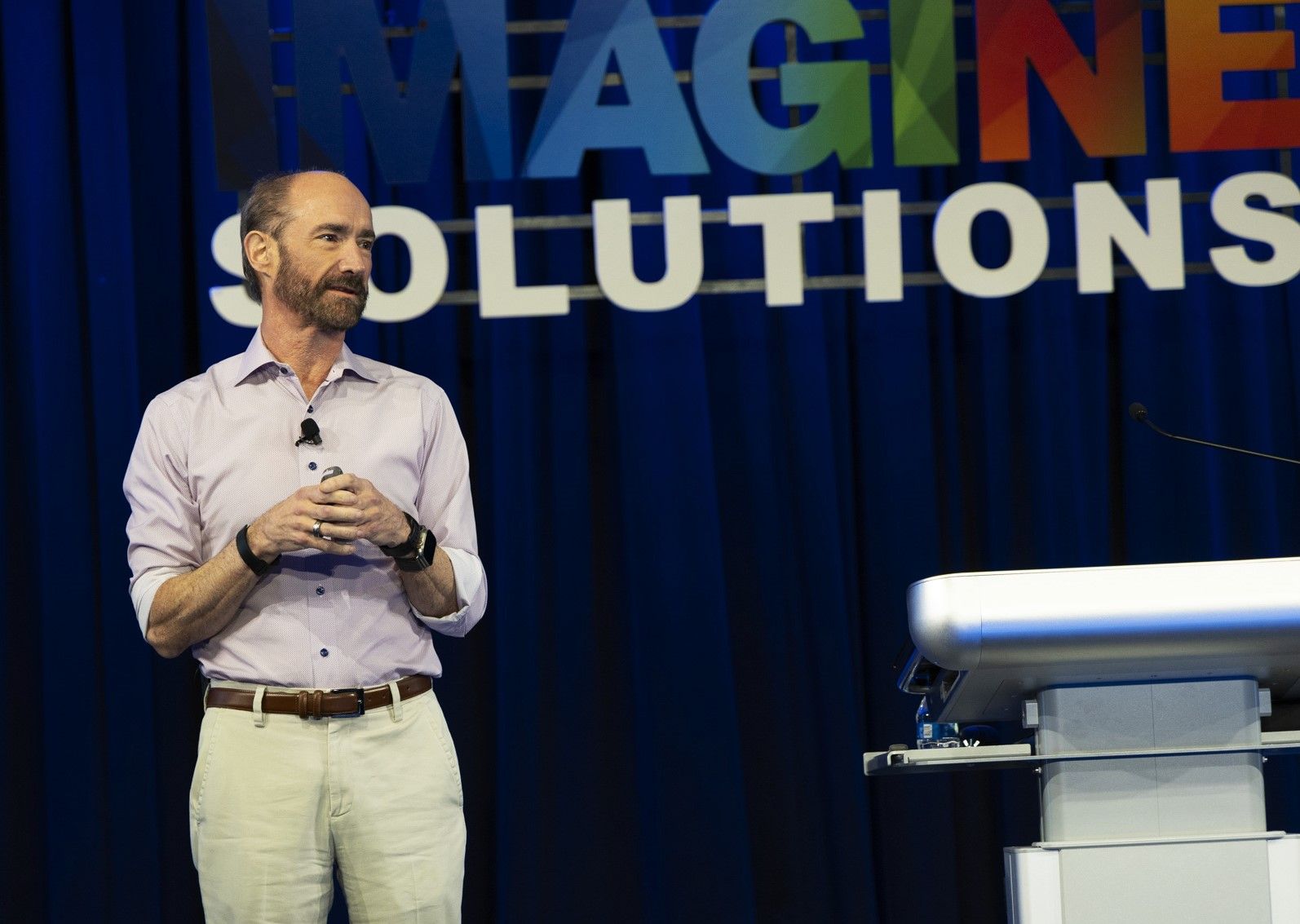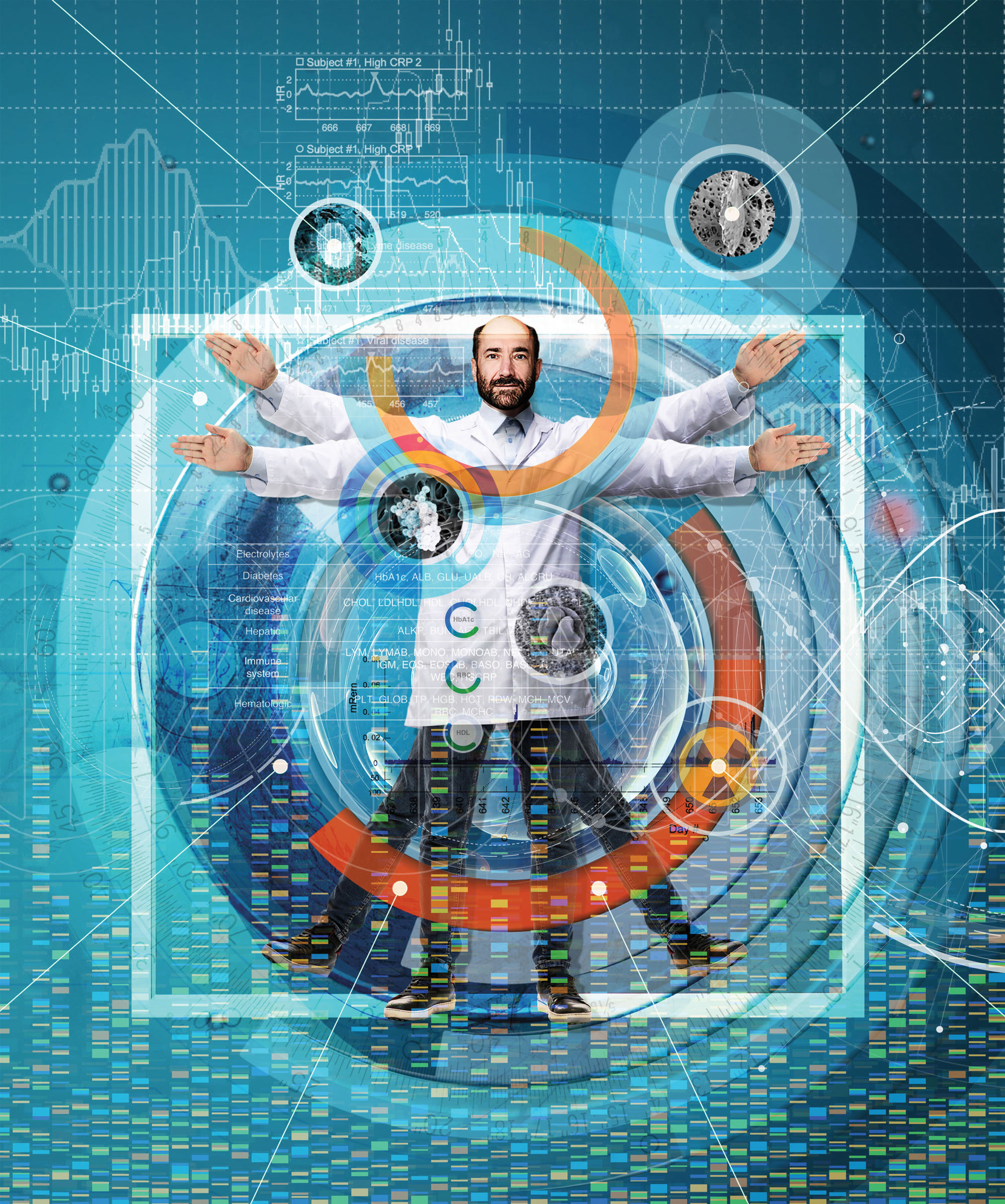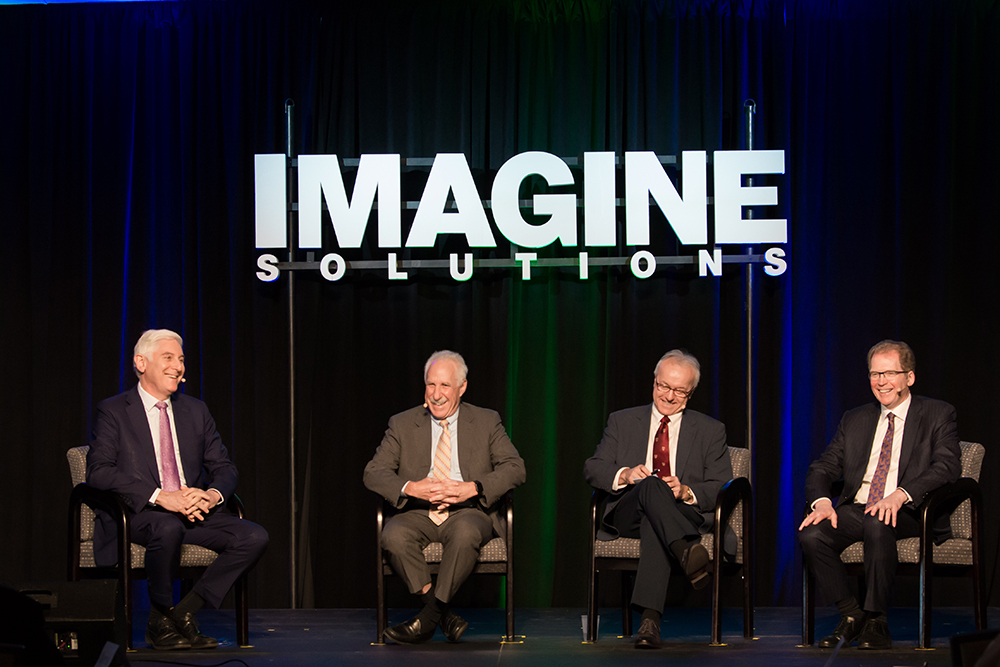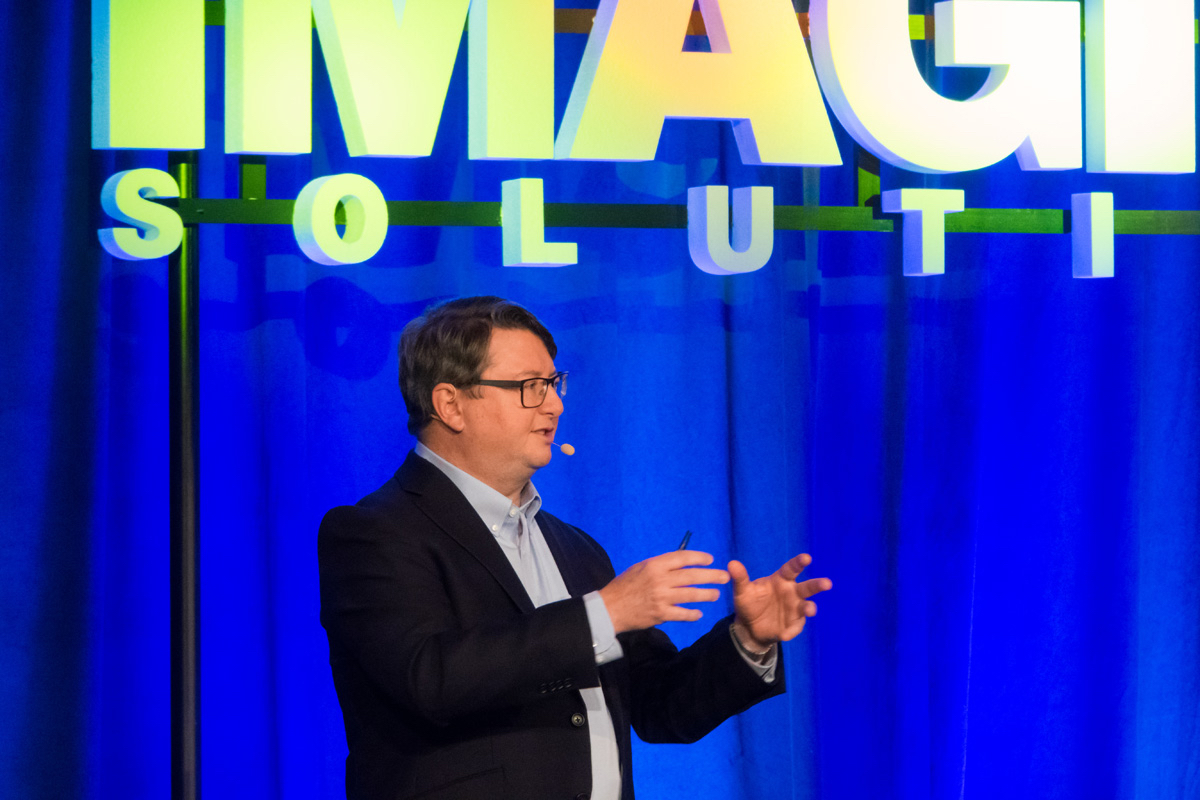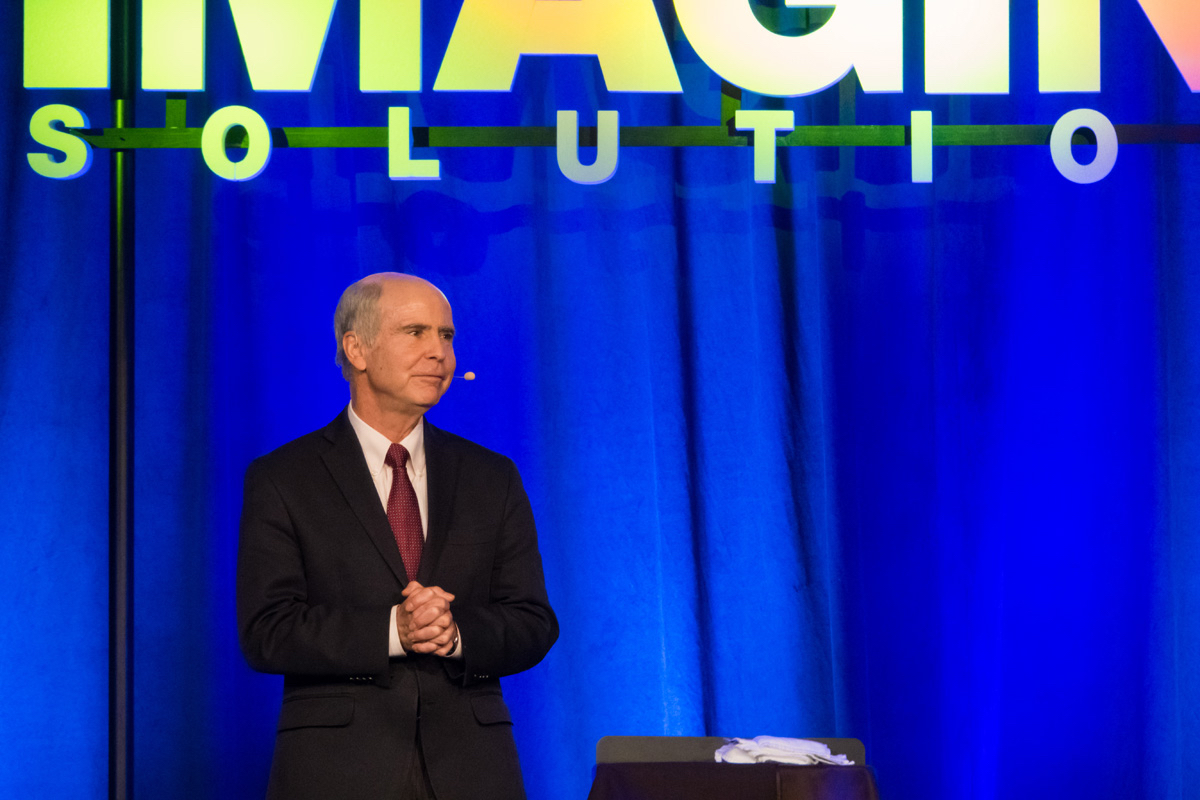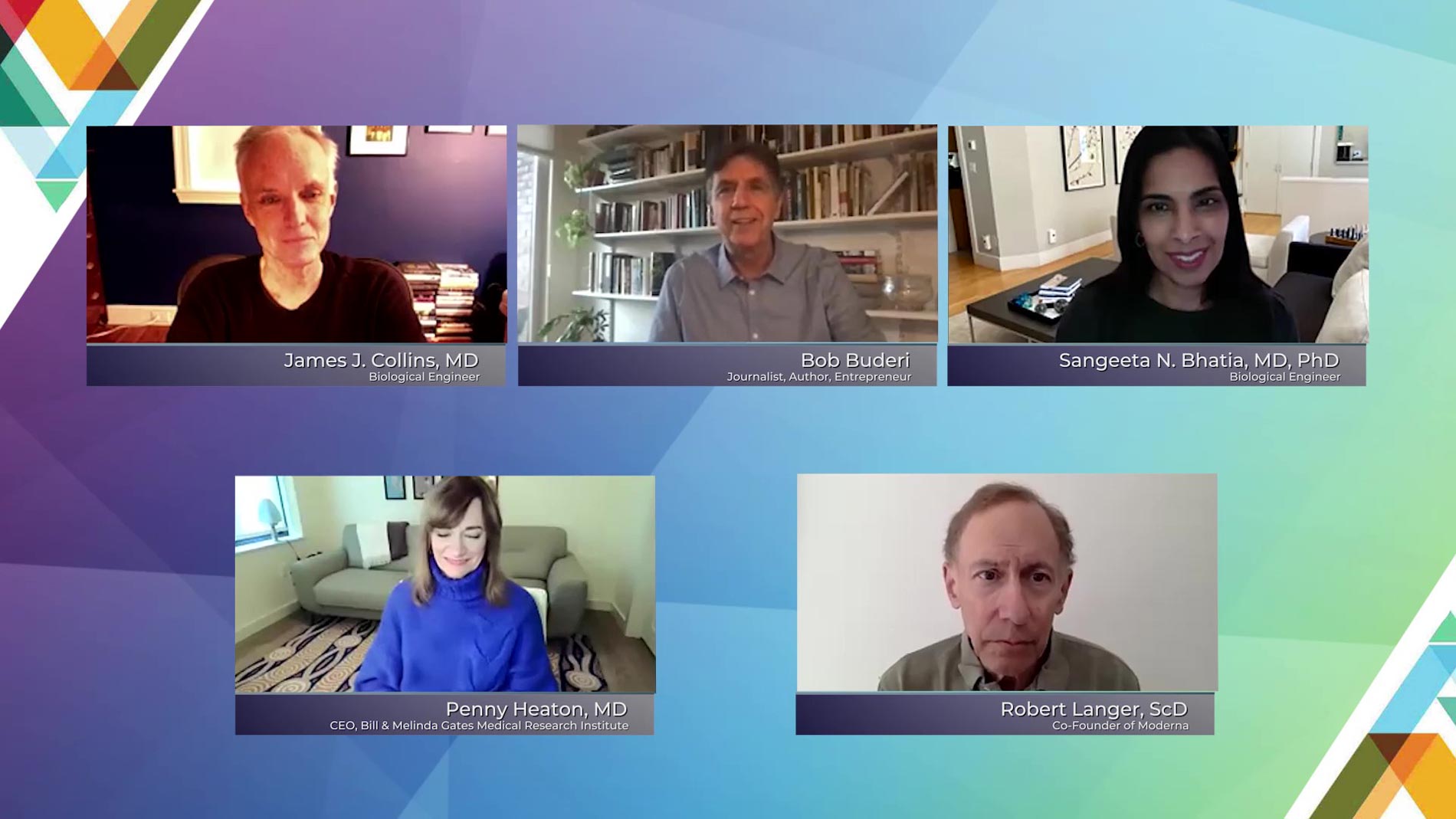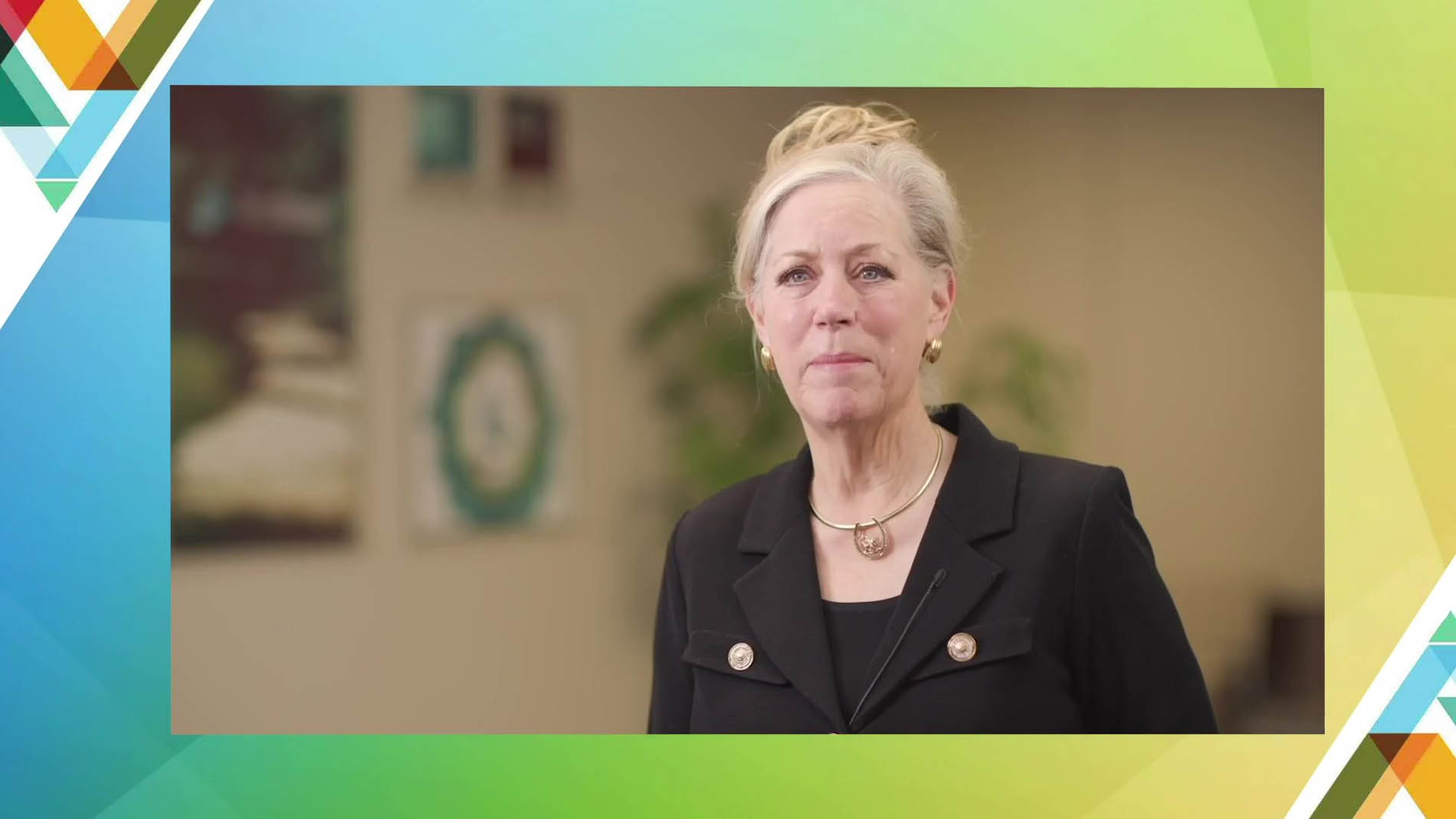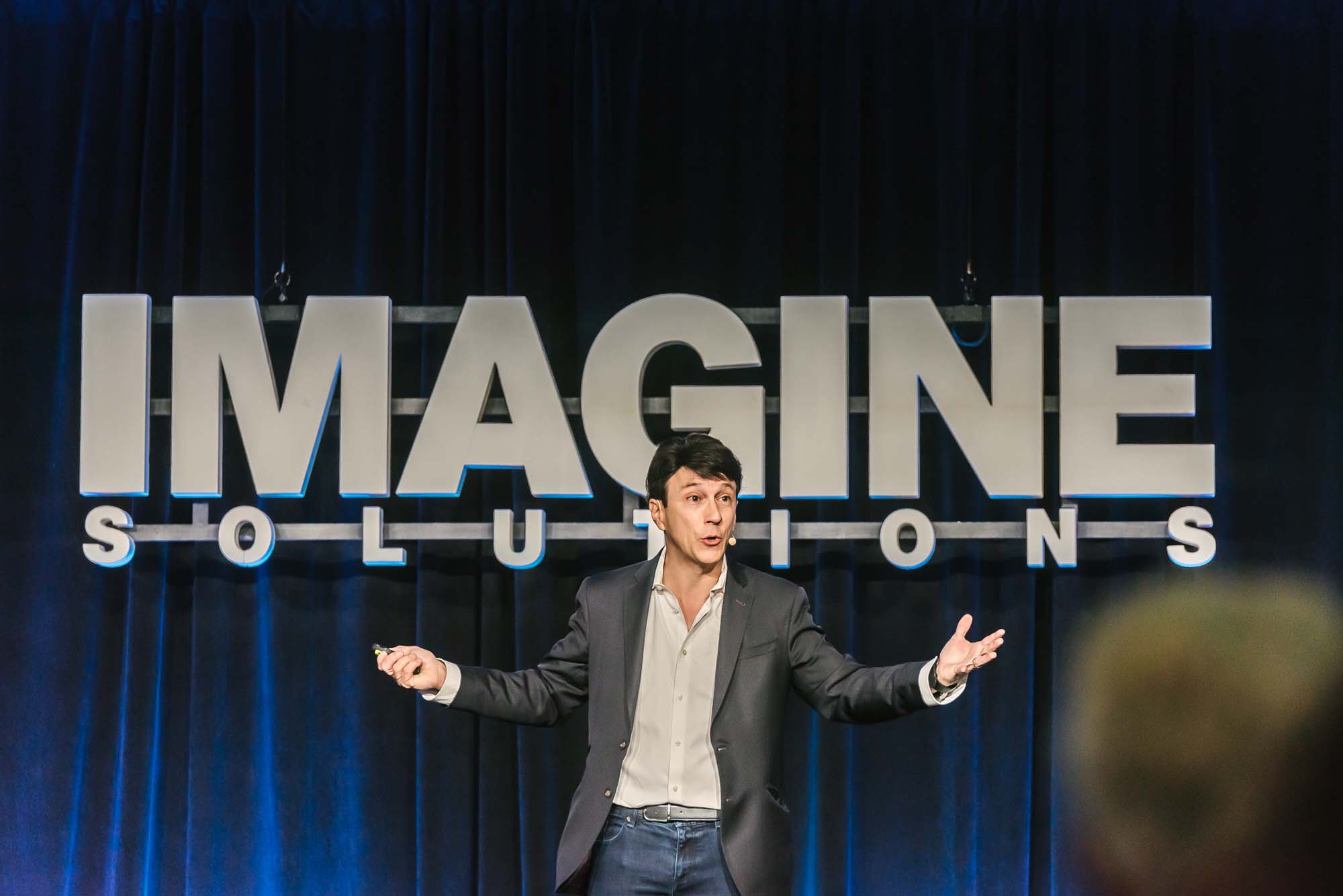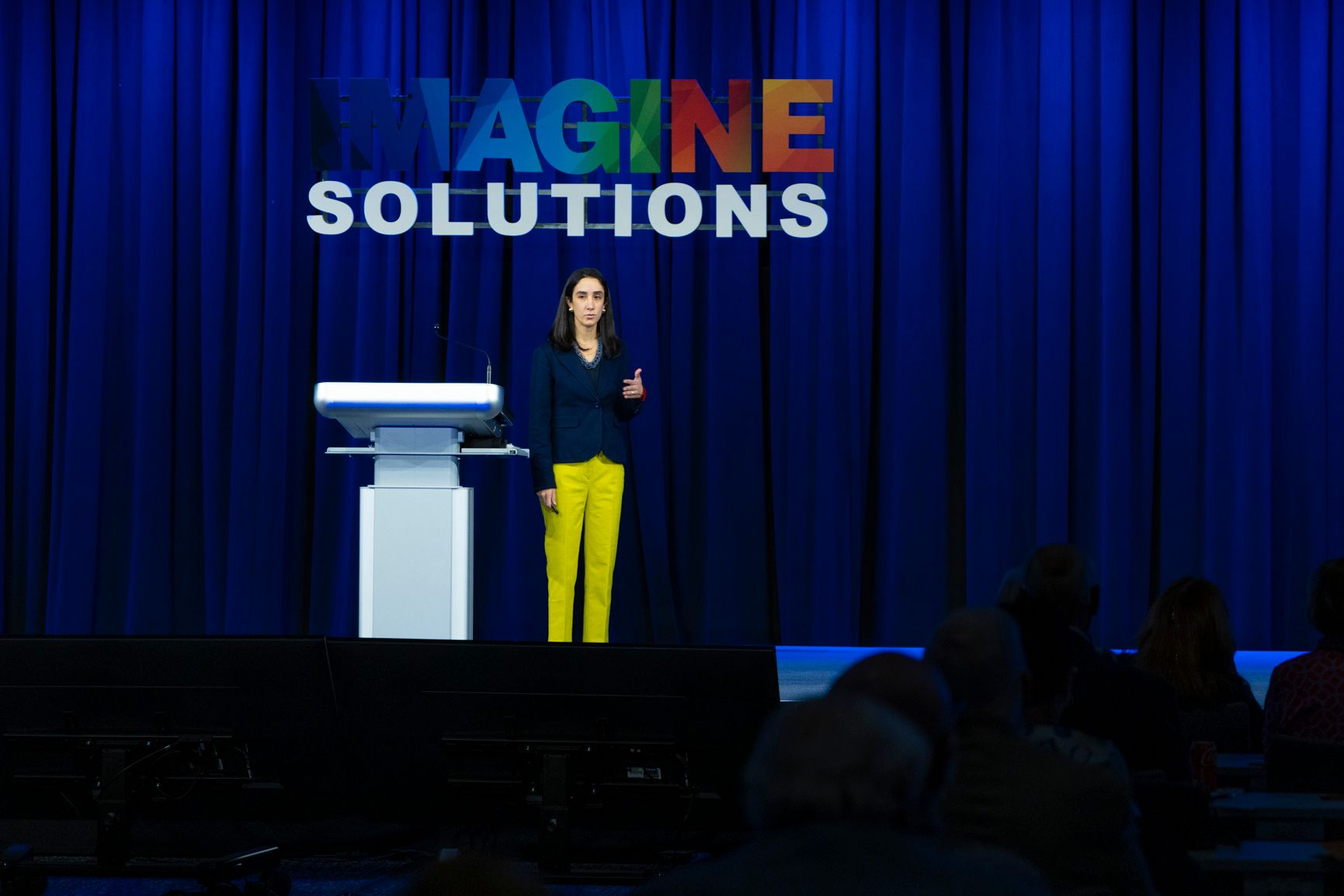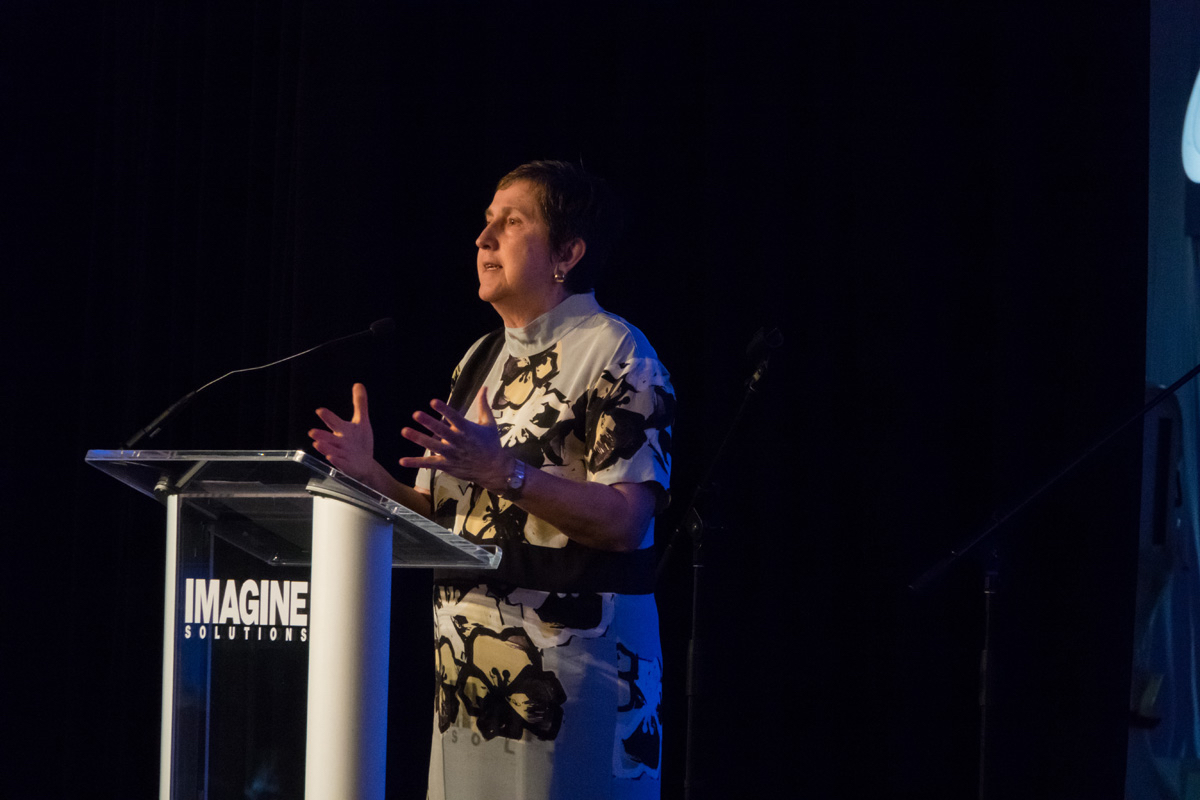Genomics and Personalized Medicine
00.00
[Music] [Music] Mike Snider is a director of genomics and personalized medicine at Stanford his laboratory has invented a number of Novel systems wide and genomic Technologies he's widely res recognized as the preeminent expert on personalized medicine please welcome Mike Snider have fun thank you okay how many of you have been wronged by the Health Care System more than that I'm sure um well first of all I think the system's broken we don't really practice health care we practice sick care not
01.00
only that when we do practice Healthcare if you think about the way we do it it's very Antiquated basically the way this works is you'll typically get in a car always at a very inconvenient time to travel to a physician's office when you're there you'll arrive at a doctor's office it looks pretty much the way it's looked for the last 40 years while you're there they'll stick a needle in you and pull a lot of blood and from all that blood and the time you're there they actually don't make very many measurements and then from those those measurements they'll treat you based on population averages we think every one of these steps can be improved and so with regards of this last one about population averages you've probably been told since you're little your temperature when you put a thermometer in your mouth is 98.6 well it turns out if you look at the data that are out there it's more like 97.5 this is just one study a very recent study from Sanford had 300,000 people and the number came out 97.7 not 98.6
02.00
but the more important point on this slide is the bottom of that box is a 25th quartile so that means there's a spread and basically 25% of people are at 94.6 and the 75th quti is 99.1 so that means in today's world if your normal healthy Baseline is 94.6 and they measure you at 98.6 they'll tell you you're normal you're healthy everything's fine go home but I guarantee if you're up four degrees over your Baseline you're not healthy and that's a big part of what we think should change we think we should know everyone should know their personal healthy Baseline and then the tech shifts from that and that's the focus of our research now I think you all know your health is influenced by many things your DNA is certainly an important one at the top here but that accounts for about 16% of your lifespan all these other factors your lifestyle and environmental exposures we know intuitively impact your health but we're in a world we we where we can actually measure many of these uh some of them
03.00
well some of them a bit clunky but even if we don't measure them directly we can actually measure their Effects by doing deep biochemical and physiological profiles on people and that's one of the things airlab does and this is because there's been a revolution in Technologies you can now sequence someone's DNA for $100 now it costs more than that to actually interpret that but nonetheless the point is it's getting rather cheap on top of that we can make thousands of measurements out of your blood through Mass spectrometry these things have in airports and there's a wearable Revolution we'll talk about that in a minute where you can do continuous monitoring of people as well all these together let us pull data in on people with Incredible ease and so a number of years ago we set up a project to see if we could use Advanced Technologies to better manage People's Health we call it the personal omix profiling where we actually it's a rather small group of people we started with 109 it's up to about 170 now but we'll see qu their DNA
04.00
once to make predictions about their genetic risk and then will'll make as many measurements as possible out of their blood and urine we even measured something called the microbiome that's your poop has lots of bacteria that are important for your health and we'll measure all these things on top of deep clinical tests uh questionnaires we also do a lot with wearables I'll talk about that in a minute as well as advanced tests like stress ooc cardiograms and glucose control measurements and we're measuring these on healthy people we're trying to understand what a healthy profile looks like not a sick profile and how that changes over time and importantly for this discussion we're trying to see if we can use these Advanced Technologies to better manage People's Health I can tell you when we started this people did not like the idea of sequencing genomes of healthy people they thought Physicians thought we'd turn everybody into hyper contract it would cost millions of dollars now they're warming up to the idea and it has turned out to be powerful so we are doing these very very deep measurements on people and also doing it
05.00
longitudinally we'll sample them every 3 months while they're healthy with additional samplings when they're ill uh and again the idea is to see if we can track their health and use these Technologies to better manage their health and just from the first three and a half years from the first 109 people we studied 49 had a major health Discovery and these Spann many many different areas they span hology cardiovascular disease metabolic health so on and so forth and some of these turned out to be a big deal should say these are all found presymptomatically no symptoms yet uh one person if you look uh under hology had early lymphoma two people had precancers listed just under that that can convert to aggressive cancers two people had serious cardiovascular issues uh several of them were quite young and so um basically we uncovered these again presymptomatically and no one technology found it sometimes it was a genome sequencing sometimes it was was the Imaging often it was the biochemical
06.01
measurements and usually it was a combination of several different measurements that we were making and so the way we like to think about this if your health is a thousand piece jigle puzzle we're trying to take five or 600 pieces versus say five or six which is currently done the way medicine is practiced now we're getting a much clearer picture the other thing we could do is that as we're tracking people over time we can see how they age and it turns out everyone ages differently person number two there in the middle their top biochemical pathway that change is their hypertrophic cardiac siging pathway so they're actually a cardio Ager if you will we later learned they're stage two hypertensive and the person on the left they're an immune Ager they also have the metabolic pathways changing and so forth and so we can actually classify people in the agot types they aging patterns and it turns out their clinical markers associated with each of these Agia types some people have actually even reversed those markers I'm not saying they got younger but they did in
07.01
fact improve their their health markers if you will now one question I get a lot is well that's a research study how you going to scale that up it cost millions of dollars and the answer is I'm in Silicon Valley so you form a company and so the company we farmed is called cubio they actually do a medical version they don't do all the assays I told you before they do many of them but not all of them and they also do whole body MRI if you ask any physician today should you do whole body MRI they'll tell tell you absolutely not and do you know why incidental findings nodules everybody has them women have them in their ovaries men in their prostate 100% of the time and if you ask Mike Snider should you do a whole body amri I say absolutely what's the difference you should be doing them longitudinally it's not do you have nodules it's do you have any growing nodules I have nine nodules I know exactly where they are I'm happy to say none are growing but I'll know if they ever take off I'll be able to spot that so we actually think these
08.01
longitudinal profiles are super important and so this company you can see up here from the first 100 plus people found some pretty important things caught someone starting from the bottom with early ovarian cancer next one up prostate cancer even caught some with early pancreatic cancer which is almost never found early and I should point out these are all found pre symptomatically once again catching these things before people had illnesses we can treat them much more effec effectively so the other thing that we've been doing a lot is this idea of of trying to monitor people at home why do you go to Physicians office when you're healthy to get measured well I think some of that is useful but much of it could be done at home and so we've been so-called Amazon iing healthc care we're using two different approaches for this one is wearables how many of you are wearing a smartwatch or ring oh excellent audience tons love it all right these things are powerful as you know because they measure you
09.00
continuous 247 and they measure some pretty important things resting heart rate heart rate variability blood oxygen that may not be accurate but the changes are actually pretty good you can pick those up pretty easily and so the other thing I'll tell you about in a minute is home micro sampling so these wearables again they're powerful because they're following you 247 I myself use eight of these devices typically you can see all my watches here my ring is a sensor even my hearing aid believe it or not I use it for hearing but it's also a sensor as well it's measuring my interaction scores which is pretty important for your health and it measures physiology as well so these things are collecting data again passively as long as you keep them charged you'll collect valuable data so one of the things we discovered early on as you can tell when people are getting ill from a simple Smartwatch and a poox it's how I figured out when I first got lime disease because basically my blood oxygen dropped my heart rate jumped up resting heart rate I later saw my skin temperature was elevated all
10.01
pre-symptomatically and then we went on to figure out it was lime sort of suspected it because of the timing was uncovered two weeks after I was in a lime infested area we then went on actually to show that um like could tell every time I got a respiratory viral infection retrospectively had two years of data and could see every time I got ill you could see a jump up and resing heart rate in advance of symptoms and we wrote algorithms that worked on me they worked on other members of our cohort every single time could tell you're getting ill from a jump up and resting heart rate so we published this in 2017 of course Along Came Co in early 2020 and right away we wanted to see if we could detect Co with a smartwatch so we partnered with Fitbit got 5,300 people enrolled and 32 of them were actually wearing their smart watch when they got Co so we wanted to see if we could pick it up and that Top Line there that's a graph of someone's resting heart rates
11.01
our very first case that individual if you look at day 48 the purple day there that's when they were diagnosed with covid uh the red day was when their symptoms first appeared but if you look Upstream of that you'll notice 9 and a half days prior to their symptoms appearing their resting heart rate jumped up you can't miss that signal it's very very obvious okay and uh we in the end we had 32 people we could pick up covid and 80% of them and the medium is four days prior to symptom onset works very well for Co because Co has a long presymptomatic period And so uh we went on to write a real-time detection system where we follow your resting heart rate in circadian fashion and then look for a jump up and signal for too high too long and it'll set off a red alert it's a cloud-based system that can follow millions of people I would like to actually monitor the entire planet half the planet has a smartphone you could actually follow People's Health for half the planet follow spread so the
12.01
bottom line is this is our realtime alerting system if you if you have the signal too high for too long you get a red alert and this is one of our first cases day 21 this person had their symptoms appeared day 22 they diagnosed but basically you can see they were getting red alerts for three days prior to symptom onset it works on Apple it works on Fitbit it even works in asymptomatic cases we can tell when people are getting ill without know without them knowing it because they get this jump up in heart rate as little as two beats per minute we pick it up and if you think about how we measure Health now with temperature it's actually a 300 year old concept and it doesn't work very well Mo H for Co half the people don't get a fever whereas resing heart ratees a very very sensitive measure and actually works pretty well now I want to emphasize this is not specific for Co there are other things that can trigger these red alerts and it turns out the number one trigger of red alerts is workplace stress okay so that can trigger things it's
13.01
actually a stress detector and we're actually we're writing algorithms and writing studies to see if we can tell mental health issues from a simple Smartwatch and we do have signals coming from that watch actually turns out your watch measures many many things and can pick up certain clinical measures like red blood cell counts and such as well we figure this out using machine learning and such and it measures other things as well many of these you can contextualize including other infections so it's a general stressor and I know with more data we can tell the difference between a mental health stress and a respiratory viral infection we already know we can tell the difference between lime and respiratory viral infections the other devices out there that are quite powerful these days are glucose monitors are any of you wearing or have worn one of these boy these are one of the most powerful and eye openening devices you'll ever measure they measure your glucose every five minutes they given that 9% of us is diabetic and 33% are pre-diabetic and 90% of those pre-diabetics don't know it we think
14.02
there's a big deal because most pre-diabetics will become diabetic and if you wear these devices what you'll discover our claim the fam is we put them on normal people and pre-diabetics we discovered that a lot of people do have good glucose control that's that top line up there the middle one is someone who has moderate glucose spiking and the one at the bottom was thought to be a thought they thought they were normal but there they were spiking just as bad as diabetics we went on the right algorithms to classify people into the spiking patterns called GL gluca types and it turns out different people Spike the different food some people Spike the potatoes others the pasta some the white bread some the brown bread it's all over the map and so uh Aon seagull this is some work from him we discovered this as well uh the top person up there participant um can't quite 445 that person spiking to a banana but not a cookie probably the only person on the planet does doesn't Spike to a
15.00
cookie the one on the bottom spikes a cookie and not a banana that's much more normal and so we found that actually you know some people Spike to bread and peanut butter probably thanks to the bread protein bars of carbs some people Spike to those 80% of people Spike the Corn Flakes and milk that stuff is Super Evil if you don't remember anything from my talk remember that watch out for that that is not healthy for most people the other thing we've worked very hard on is the idea of remote sampling why go to a physician when you're healthy when you can make a lot of these measurements or give samples at home and we spent about seven years on this the idea is you take little pricks of blood you mail them into US FedEx them in and their lab will then quantify about 2,200 molecules in people's blood now I know what this sounds like but ours actually works okay so basically we'll do deep metabolomics proteomics lipids the these are measuring all your proteins your metabolites your lipids and some very
16.00
very targeted assays on pretty key molecules are shown at the bottom and so we spent a lot of time as I say developing this technology and then we went on to run some really fun studies we had 32 people drink the shake that you can buy in CVS and then we profiled them before 30 minutes 60 120 240 minutes afterwards and what we discovered is that everybody reacts with the shake differently so each box of there is a different person this I don't know if I can point this out probably not the one that's about uh a third over it's called s13 that individual I'm showing the carbohydrates here that individual's carbohydrates plummets when they drink the shake but you just go over three more boxes and you'll see someone whose's carbohydrate sky rocket you look through there you'll see some people go up other people go down it's all over the map one the fun results is shown at the bottom we've summarized how
17.00
people react and people classifying the five types of people the gray is the average and you're probably have a hard time seeing this but the brown spot sort of at about 10:30 there in group five those are your inflammatory markers for group five people their inflammatory markers goes down when they drink the shake go over to group four their inflammatory markers goes up same with group one so for some people the shake is pro-inflammatory and others it's anti-inflammatory so it's very personal okay when you think about 10% of people having inflammatory bowel syndrome probably a lot of you have had something at some point in there we can actually measure that with this kind of an assay here is in fact now our ultimate experiment we took one person we analyze them every hour for seven straight days every waking hour where they gave samples and they're wearing one of these continuous glucose monitors in a small Smartwatch and logging their food and
18.00
everything else and then we went on to see basically if we could correlate their behavior the foods they at with their physiology and biochemistry and what we discovered is there's thousands of correlations between people um what's shown on there is heart rate steps and and glucose and we can make correlations with their inflammatory markers basically they metabolites their lipids and we find all kinds of cool things some of which known already we saw on this person their glucose went up 10 minutes sorry their insulin went up 10 minutes after their glucose that would be expected what we can measure it the other thing that was kind of interesting we discovered a brand new inflammatory marker that went up uh in response to glucose as well and then one of the things that's cool here that fits off of Fanny's talk see that Alpha sincan graph in the middle that's a marker that's been implicated in dimension and Parkinson's shows a very interesting pattern we think it's going up in response to certain stresses and
19.02
we can measure that so the idea here is that if we can quantify this we could actually be able to measure individual responses to things like this Dimension marker and maybe people would be modify their behavior and possibly push off getting dementia down the road so the idea is with markers as you heard earlier we could better manage people's uh conditions or the stresses they may might do with the idea of trying to push off disease so the way um we're pulling all this data in we build a dashboard not un like your car dashboard that pulls in all your data your wearable data your clinical data your omix data all this different data that's out there and displays it on your phone we think your iPhone's going to be your most important Health instrument and of course you can talk to and it can talk back to you so you'd be able to interact with it and especially using AI be better able to manage your health because you'll have more time to spend
20.00
on your iPhone than you do with your physician so the other thing we've done as I mentioned is that we are trying to get these Technologies out there so I founded a number of companies over the years this is just a few of them and the idea here is again to get these Technologies out there and I'll just show you one example this is Yolo which actually does a 500 metaboly test meaning you you give a drop of blood in this case from your shoulder mail it in and they give you back report and 600 metabolites that fall into 20 Wellness categories and they cover things that are pretty important whoops oxidative stress so I can go back inflammation uh bone health heart health all these different things and they can even give you a an aging report your profile based on that of others and we contract this longitudinally and with regard to the Aging report this is a very T well maybe a typical one this is an individual whose biological age is older than their chronological AG so biologically they're
21.01
older than they should be okay but the nice thing is you can break this down into the agent types I mentioned earlier so their inflammation markers are pretty good their metabolic age markers aren't so bad either but their heart age is older than it should be and by using AI we can pull in information about their profiles and and other uh information that's out there and make recommendations about what they might do to improve their Wellness profiles and 95% of people who do do this actually improve their profiles for the next visit so where is all this going well this is Mike Snider's world I Envision a world where people get sequenc before they're born and then together with biochemical and wearable measurements we can better track their health predict risk catch disease early and better manage and treat disease using datadriven uh approaches and we can build personalized AI tracking systems around people I of course have one around me because I like to track all these things myself but that'll be we
22.02
think effective in Catching disease early and better managing treat disease so that's my vision of the future and I hope you can imagine that thanks can I ask you a question step on up I want you to hold your hands up I can't help but notice that you seem to have some devices what are you measuring do you mind me asking sure uh do you want them all the whole list yeah well lots of them yeah give me resting High rate heart rate variability something called galvanic stress response which they don't measure now that's conductance on your skin believe it or not when you're diabetic your skin gets drier so you can pick this up and we can predict people's glucose levels from a simple Smartwatch uh what else it measures skin temperature which is pretty accurate sleep of course which is a big deal uh this is my Expos ometer measures Airborne exposures you don't know what you're breathing right now I don't know either you know what I'm breathing right now I will when I get back to paloalto okay all right that's
23.00
not a lot of help for me right here it could be later yeah anyway it's all kinds of different things that's interesting fascinating good so Mike thank you very much appreciate it thank you so [Applause] [Music] much

